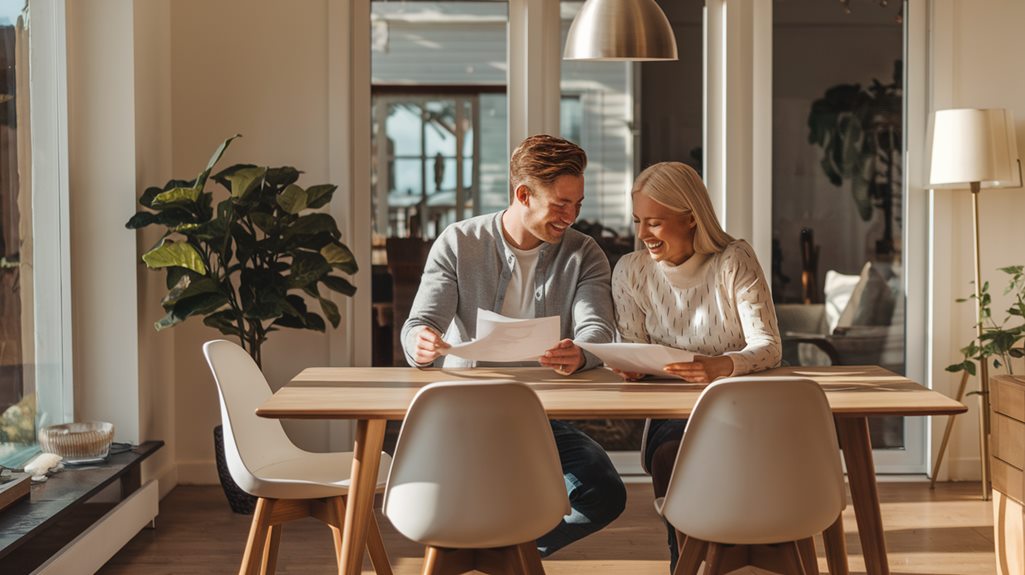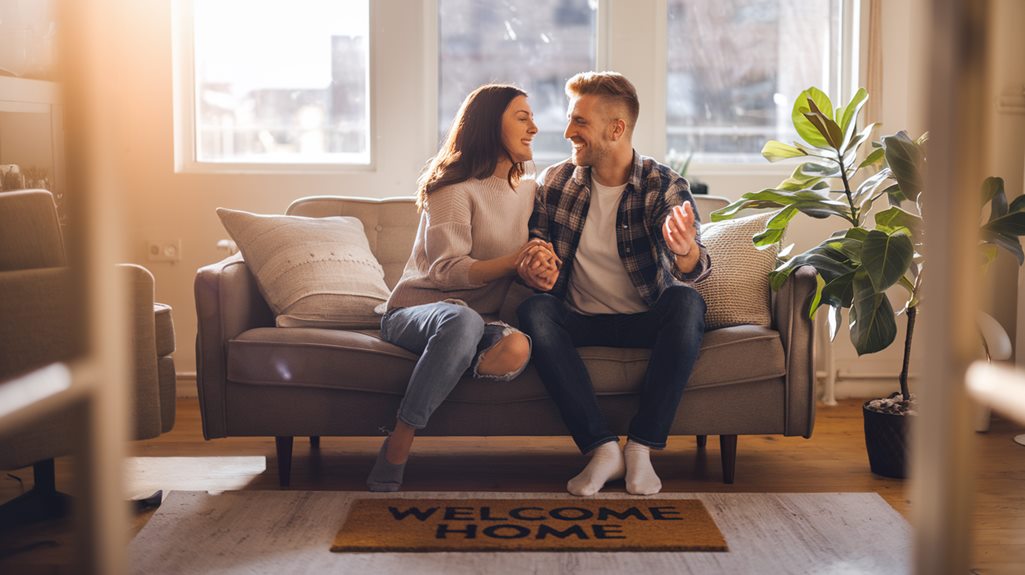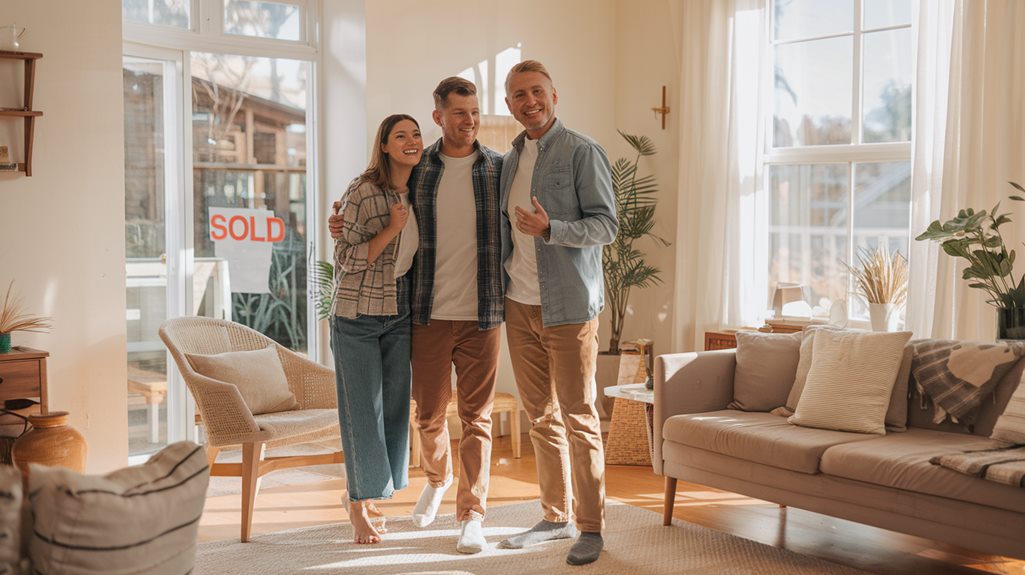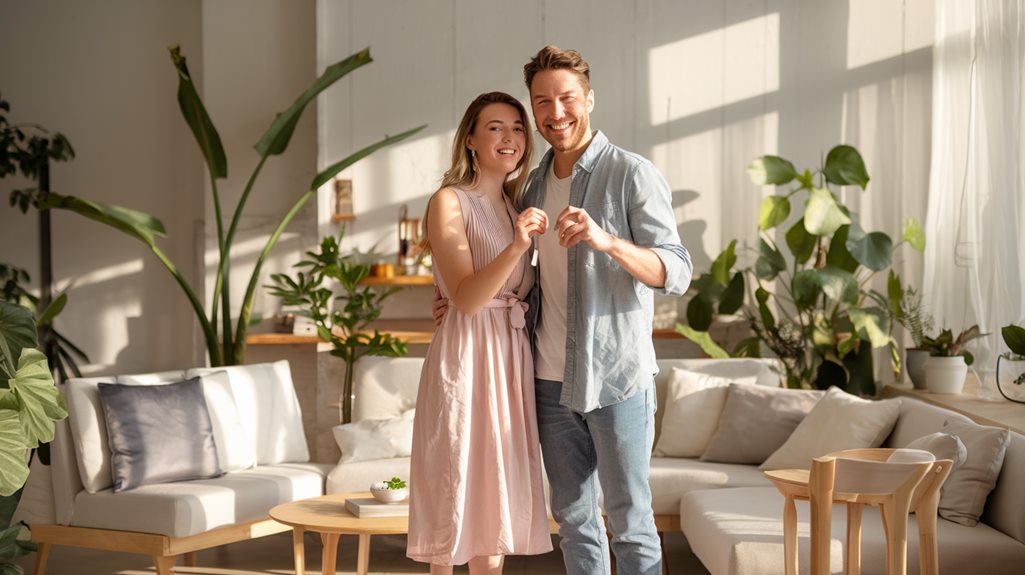Buying your first home can be exciting but also a little scary. Start by looking at your money. Make a budget and check your credit score. This will help you know how much you can spend.
Next, get pre-approved for a mortgage. This will show sellers you are ready to buy.
Think about what you really need in a home and what you just want. This will help you find the right place faster. Look into different neighborhoods. Check if they have parks, stores, and are safe. Also, think about if the house will be easy to sell later.
Find a good realtor. They are like guides who know a lot about homes and can help you. When you find a home you like, have someone check it out for problems. This is called a home inspection.
Finally, when you make an offer, be smart about negotiating. You want to get a good deal!
Following these steps can make buying your first home much easier and more fun. There is so much more to learn that can help you on this journey!
Ready to start building equity in your own Michigan home? Get your personalized home loan quote today.
Assess Your Financial Health

Before you start the fun journey of buying your first home, it's really important to check how healthy your money situation is. First, take some time to make a budget. Look at how much money you earn, what you spend, and any money you owe. This will help you see how you're doing with your money and help you know what to expect when buying a home.
Next, think about how to save money. It's a good idea to have some extra money saved up for emergencies and also to save for a down payment on your new home. This won't only make you feel safer with your money but also make you look better to people selling homes and to banks.
Having a solid savings plan means you'll be ready for any surprise costs that come with owning a home.
Michigan residents, unlock the door to your new home. Request your home loan quote from Treeside Financial today.
Get Pre-Approved for a Mortgage
Before you start looking for a new home, it's really important to get pre-approved for a mortgage.
First, check your credit score. This number helps decide what kind of loan you can get and how much interest you'll pay.
Next, gather all your important financial papers.
Then, look at what different lenders are offering. This way, you can find the best deal for your new home!
Understand Your Credit Score
Getting a house starts with knowing about your credit score. Your credit score is very important when you want a mortgage. First, get your credit report to see how you're doing. A good credit score can help you get better mortgage rates. If your score is low, you might need to work on paying off some debts.
You might be closer to buying your home than you think
Take our 2-minute home buyer readiness quiz to see how prepared you really are – no credit check required.

Here are some easy tips to help:
- Check for mistakes: Look at your credit report to make sure everything is right. Mistakes can hurt your score.
- Pay off debts: Try to pay down debts that have high interest. This can help your score go up.
- Don't get new credit: If you open new credit accounts, it might hurt your score for a little while.
- Pay on time: Always try to pay your bills on time. This shows lenders that you can be trusted.
Understanding these things can help you get ready to buy a home!
Gather Necessary Financial Documents
Understanding your credit score is really important. It helps you get ready for the next big step: gathering all the papers you need to get pre-approved for a mortgage.
First, you need to show how much money you make. So, have your recent pay stubs and a list of jobs you've had.
Next, get your tax papers from the last two years. These show how stable your money situation is. You should also have your bank statements ready. This shows that you have money saved or in investments to help with the down payment and closing costs.
Don't forget to write down what you owe each month. This helps lenders see how good you're at managing your money.
Lastly, list your monthly expenses to give a full picture of your financial health. Doing all this will make you feel more confident and help you feel like you belong in the homebuying journey.
Compare Lender Interest Rates
Getting the best mortgage deal starts with looking at what different lenders offer. If you're buying your first home, you want to make sure you aren't paying too much.
Take time to compare lenders to help you make smart choices for your money. Here are some things to think about:
- Interest rate talks: Ask if they can lower the rate for you.
- Fees and closing costs: Know the full cost, not just the interest rate.
- Loan terms: Look at fixed rates and variable rates to see what's best for you.
- Customer service: Pick lenders who are friendly and easy to talk to.
Prioritize Your Needs and Wants

When you start looking for your first home, it's really important to know what you need and what you want. First, think about the things you absolutely have to have. This could be how many bedrooms you need, how close you want to be to work, or any special features you can't live without.
Knowing these things will help you find a home that feels right for you now and in the future.
Next, think about what you'd like to have but don't really need. Maybe you want a big backyard or a shiny new kitchen.
By focusing on what you need first, you can find homes that fit your must-haves and keep your budget in check.
Research Neighborhoods Thoroughly
When you think about where to live, it's really important to know what you want and need.
But it's just as important to learn about the neighborhoods you're looking at. Doing some research helps you find a place that feels like home.
Here are some things to think about:
- Fun places: Check out local parks, playgrounds, and stores that can make life better.
- Safety: Look into how safe the neighborhood is. You can find out about crime rates and what people do to keep it safe.
- Schools: Even if you don't have kids, good schools can help the neighborhood and keep home prices up.
- Getting around: Think about how close you're to buses and major roads. It should be easy to travel where you need to go.
Work With a Trusted Realtor

Working with a friendly realtor can help you a lot when buying a home. They know a lot about the area and can tell you about house prices and market trends. You can ask your friends, family, or coworkers for recommendations to find someone you can trust.
A good realtor will listen to what you need and help you step by step. It's important to talk about how you like to communicate. Do you prefer to text, call, or email? Make sure your realtor knows how you like to stay in touch.
When you team up with a realtor you trust, you'll feel supported. This can make the home buying process easier and more fun. Trust them to help you make this big decision.
Conduct a Detailed Home Inspection
When you buy a home for the first time, it's very important to check it carefully. This helps you find big problems that could cost a lot of money later.
Look for any cracks in the walls and make sure the roof is strong. Check the wires to see if the electricity works well.
Also, see if the pipes are in good shape and not leaking. Doing these things helps you know if the house is safe.
This way, you can decide if it's the right home for you.
Identify Structural Issues
Before you buy a house, it's very important to check it carefully. This will help you find any big problems that might cost a lot to fix later. You want to make sure your new home is a safe and happy place to live.
Here are some key things to look at during the check:
- Foundation cracks: Look for any cracks. These might mean there are serious problems with the house.
- Roof condition: Make sure the roof is in good shape. A good roof keeps rain out and stops leaks.
- Walls and pests: Check the walls for signs of bugs like termites. They can hurt the walls and make them weak.
- Drainage problems: Make sure water drains well around the house. If water collects, it can hurt the foundation or cause mold.
You should also check how well the house is insulated, if the windows close tightly, and if the air can move around well.
These things help keep your new home safe and save energy.
Check Electrical Systems
After checking if your new home is strong and safe, it's time to look at the electrical systems. Keeping your home safe with good electricity is very important.
You should hire a licensed electrician to look closely at the wiring. They'll check if the wires are in good shape and tell you if you need to fix anything. Old or broken wires can be very dangerous, like starting a fire, so make sure to do this step.
Find out how much electricity the home can handle and make sure it's up to date with today's standards. The electrician will also check the breaker panel for any problems.
Taking these steps will keep your home safe and make you feel good about living there. Remember, home isn't just a place to stay—it's your special place.
Evaluate Plumbing Conditions
When you look at a new home, it's super important to check the plumbing. This helps you avoid big problems later on.
Here are some easy things to do:
- Look for leaks: Check under sinks and near faucets for any wet spots or damage.
- Test the water pressure: Turn on the taps and showers to see if the water flows nicely and is strong enough.
- Check the pipes: See if the pipes are made of strong, new materials or old ones that might need to be fixed.
- Check the drains: Make sure all the drains work well and don't get stuck.
Doing these simple checks helps you feel good about your new home!
Negotiate Smartly for the Best Deal

When you start to buy your first home, knowing how to negotiate can help you get a better deal. First, learn how to make counteroffers so you don't pay too much. Look at what homes like the one you want are selling for to help you make a good offer.
Don't forget to talk about closing costs too; these can help you save money right away. Ask your agent if the seller can help with some of these costs.
Be patient and keep trying! It's good to build a friendly connection with the seller. This can help both of you feel good about the deal.








